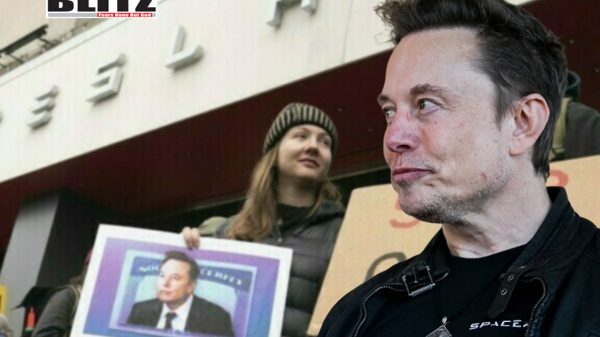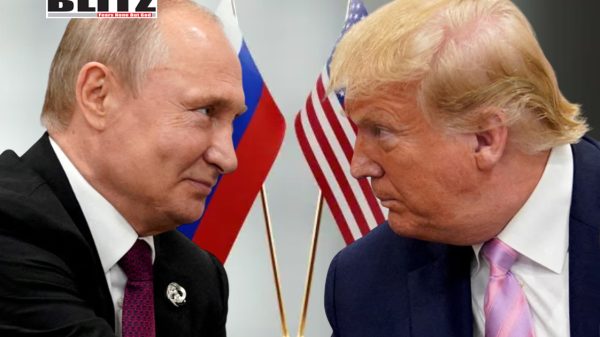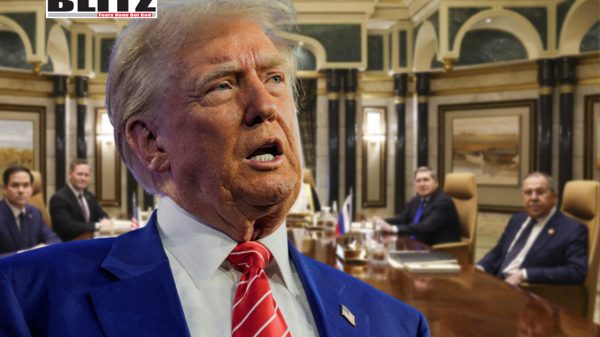Trump officials push back against Musk’s government efficiency initiative
- Update Time : Wednesday, February 26, 2025

A directive from Elon Musk, appointed as the US government’s efficiency czar under President Donald Trump, has sparked internal resistance among senior federal officials. Musk’s instruction required federal employees to submit weekly summaries of their work or face potential termination, a move that some department heads have rejected, citing concerns about security, autonomy, and operational efficiency.
On February 22, Musk announced the mandate on the social media platform X, stating that all federal government workers must outline their weekly accomplishments in five bullet points. Failure to comply, he warned, might be interpreted as voluntary resignation. The Department of Government Efficiency (DOGE), led by Musk, issued emails requesting submissions from the 2.3 million federal employees by February 24. These messages were sent through the Office of Personnel Management (OPM), the federal government’s HR agency.
The initiative followed Trump’s call for Musk to intensify efforts to curb perceived government waste. Yet, despite the presidential backing, key officials have resisted the measure. According to reports from The New York Times, several Trump-appointed leaders within federal agencies instructed their teams to disregard Musk’s directive.
Director of National Intelligence Tulsi Gabbard explicitly prohibited her staff from complying, emphasizing the sensitive and classified nature of the work conducted within the intelligence community. “Such reporting requirements jeopardize national security by risking the exposure of sensitive operations,” Gabbard stated in an internal memo obtained by the newspaper.
Similarly, FBI Director Kash Patel instructed bureau employees to “pause any responses” to the request, asserting that the FBI maintains full control over its internal review processes. The Pentagon echoed this stance, with Darin S. Selnick, acting head of personnel, directing Department of Defense employees to refrain from responding. Additionally, the Department of Health and Human Services (HHS) issued mixed messages, creating confusion among its workforce regarding compliance.
Musk’s appointment as head of DOGE was part of Trump’s broader agenda to streamline government functions, reduce wasteful spending, and enhance operational efficiency. However, critics argue that Musk’s private-sector background and aggressive cost-cutting approach risk undermining essential government services. Detractors have voiced concerns that his methods aim to dismantle key federal agencies, paving the way for increased corporate involvement in public administration.
Supporters of Musk’s initiative contend that regular reporting is standard practice in private industry and can help improve accountability and productivity within government agencies. They argue that requiring employees to summarize their weekly contributions is a reasonable measure to identify inefficiencies and promote performance-based accountability. Proponents also highlight that Musk’s focus on cost reduction aligns with Trump’s campaign promises to shrink the federal bureaucracy.
However, opponents argue that the directive reflects a misunderstanding of government operations, where work often involves long-term projects, classified missions, and collaborative efforts that cannot be easily condensed into bullet points. The backlash from senior officials underscores the tension between Trump’s push for government reform and the practical realities faced by federal employees.
Musk, known for his unorthodox communication style, responded to the controversy with characteristic defiance. He described the weekly reporting requirement as a “very basic pulse check” designed to ensure that taxpayer dollars are spent effectively. In a post on X, he compared the backlash to opposition against Covid-19 vaccination mandates, sharing a meme suggesting that people resist accountability measures when they perceive them as coercive.
Trump has publicly supported Musk’s initiative, framing it as a necessary step to eliminate government waste and hold federal workers accountable. Speaking at a recent rally, Trump praised Musk’s efforts, stating, “We’re finally holding Washington accountable. No more freeloaders collecting taxpayer money without delivering results.”
The internal pushback, however, highlights broader challenges in implementing Trump’s government reform agenda. Federal agencies operate under complex legal and regulatory frameworks designed to protect national security, ensure transparency, and uphold civil service protections. Critics argue that Musk’s corporate mindset may conflict with these principles, creating friction with career government officials tasked with balancing efficiency with compliance and accountability.
The controversy also raises questions about the limits of presidential authority and the autonomy of federal agencies. While Musk’s appointment grants him significant influence over government efficiency initiatives, his authority is limited by existing laws and regulations governing federal employment. Legal experts suggest that terminating employees solely for failing to submit weekly reports could violate civil service protections designed to prevent politically motivated firings.
Despite the resistance, Musk remains determined to implement his vision of a leaner, more accountable government. In a follow-up post on X, he stated, “Resistance to transparency only strengthens our resolve. Taxpayers deserve to know their money is being used effectively.” His team at DOGE is reportedly exploring additional measures to enforce compliance, including performance audits and budget reviews.
As the standoff continues, the outcome could have far-reaching implications for the future of federal workforce management. If Musk succeeds in implementing his reporting system, it could mark a shift toward more corporate-style performance metrics within government agencies. Conversely, sustained resistance from senior officials may force the Trump administration to recalibrate its approach, balancing efficiency with the unique demands of public service.
In the coming weeks, the administration’s response to the pushback will likely determine whether Musk’s initiative gains traction or becomes another example of the challenges inherent in reforming the federal bureaucracy. For now, the clash between Musk and senior officials underscores the broader debate over the role of government, the limits of accountability, and the tension between private-sector efficiency and public-sector responsibility.












Leave a Reply